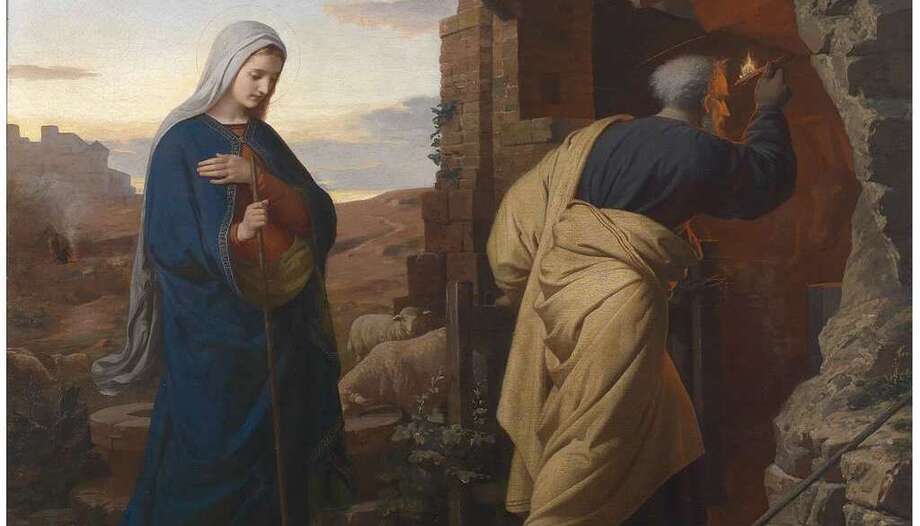Because of the evolution that this Sunday of Advent has followed in liturgical history, it was the last Sunday to receive its own prayers. The collection in use until before the conciliar reform was replaced by one more akin to the physiognomy that this Sunday was acquiring. The new prayer comes from the old Adrian and Paduense sacramentaries, and is the only one that was not already in an Advent form.
It should be noted that the Advent Collect presented below is used not only in this and other Missal formularies, but also in the Liturgy of the Hours, and even as the culmination of the Advent prayer. Angelus. We are probably in front of a jewel of the liturgy.
"Pour, O Lord, your grace into our hearts, so that we who have known, through the angel's proclamation, the incarnation of Christ, your Son, may come, through his passion and cross, to the glory of the resurrection."
"Grátiam tuam, quaésumus, Dómine, méntibus nostris infúnde, ut qui, Ángelo nuntiánte, Christi Fílii tui incarnatiónem cognóvimus, per passiónem eius et crucem ad resurrectiónis glóriam perducámur."
As for the structure of this prayer, we note that it begins directly with a petition (quáesumus... grátiam tuam) in which the brief invocation to the Father is introduced (Domine). Then follows the reference to the Annunciation (with the ablative absolute Angelo nuntiánte) and Incarnation of Christ, which is the heart of the mystery celebrated today. He ends by explaining the purpose of the petition. Let us calmly go through each element.
Mary always with Jesus
The best way to prepare ourselves for the birth of the Son of God is to remember the moment of his Incarnation (Christi Fílli tui incarnatiónem) in the most pure womb of the Virgin Mary, through the work of the Holy Spirit, as announced to her by the Archangel Gabriel. As we well know, faith in the true incarnation of the Son of God is the distinctive sign of the Christian faith, and the Annunciation to Mary already inaugurates the fullness of time (cf. Catechism, nn. 463, 484).
The Gospel proposed to us for this Sunday in the B cycle (Lc 1, 26-38). In cycles A and C, instead, the passages of the birth of Jesus and the visitation of Mary to Elizabeth are proposed. It is worth noting that, in all cases, the character who constantly appears next to Jesus is his Blessed Mother. It could not be otherwise, for, as the Fathers of the Church say: "The knot of Eve's disobedience was untied by Mary's obedience. What the Virgin Eve tied by her lack of faith, the Virgin Mary untied by her faith. Thus we remember how she collaborated with her free faith and obedience in the salvation of humanity.
To Heaven
A great merit of this prayer is its very complete presentation of the mystery of our redemption. Let us grasp the thread that leads us from the Incarnation and the hidden life of our Lord, through his public life, to his Passion and Death on the Cross, and finally to his Resurrection. Such a perspective might seem strange in Advent, but on the contrary, preparing for Christmas requires us to look deeply into this mystery through which our redemption began. As St. Leo the Great puts it, "the generation of Christ is the beginning of the Christian people, and the birth of the head is at the same time the birth of the body" (Sermon 6 at the Nativity of the Lord).
In this way, we are promised that Christ's victory over death and sin will become ours as well. We are called to participate in this saving mystery through the liturgy, in which "what was visible in our Savior has passed into his mysteries" (Sermon 74). This collect sums it up admirably well with just two words, one at the beginning and the other at the end: grace and glory. As the saintly Cardinal Newman said: "Grace is glory in exile, and glory is grace at home. God, in his great mercy, reveals to us that his divine help embraces our whole life and leads us to eternal life. The mystery of Christmas is a mystery of hope. And it comes to us through the one who is "full of grace".
Priest from Peru. Liturgist.





 You and God prepare for the feast. Collect for the III Sunday of Advent
You and God prepare for the feast. Collect for the III Sunday of Advent





